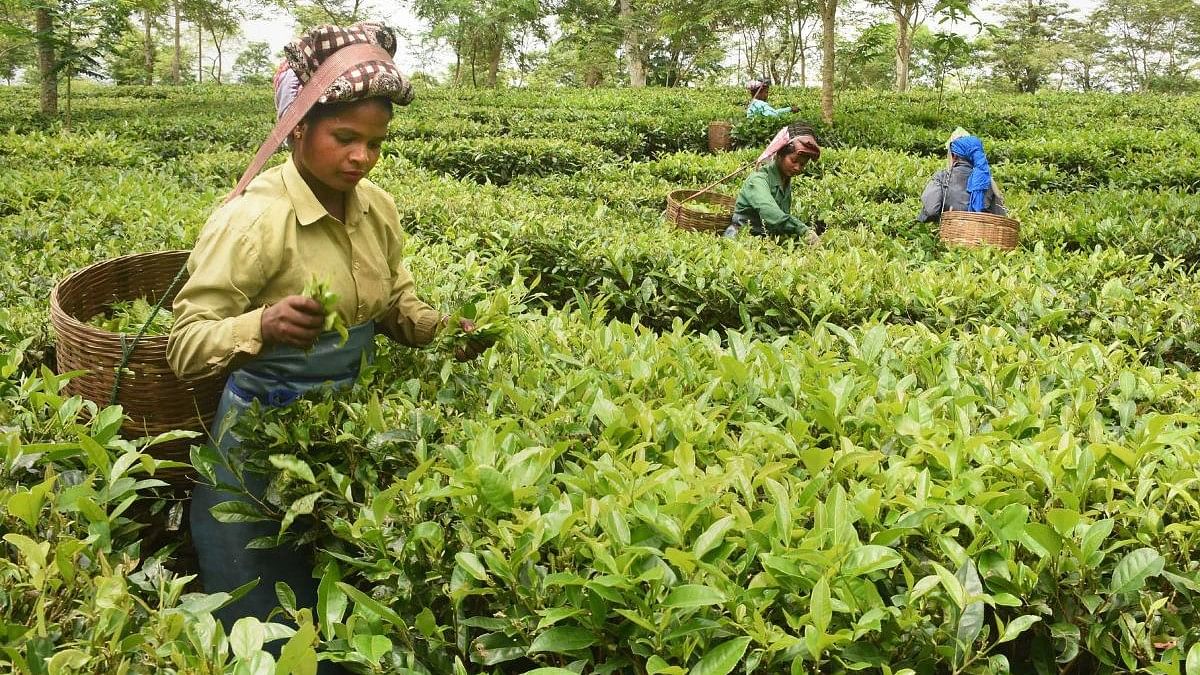
Workers pluck tea leaves at a tea-estate in Dibrugarh district of Assam.
Credit: PTI file photo
Kolkata: Associations of tea producers in Asia and Africa have flagged concerns over the global mismatch of demand and supply and called for an early restoration of equilibrium, according to a statement issued by a planters' body on Friday.
In a meeting of the stakeholders of the global tea industry, recently held in Dubai, the associations also addressed the issue of quality and long-term sustainability of the sector.
Indian Tea Association (ITA) chairman Hemant Bangur said that the global tea industry is facing a demand-supply mismatch as production continues to outpace demand.
Representatives of ITA, East African Trade Association (EATTA), independent tea producers' body of Kenya, and tea associations of Malawi, Bangladesh and Uganda attended the meeting.
They voiced concern over stagnating consumption demand in Europe and Asia, the ITA said in a statement.
Bangur said, "Africa with its growing population and rising income has the potential to become one of the largest markets for black tea." According to the ITA statement, EATTA chairman Arthur Sewe said the tea sector in East Africa is currently facing a decline in quality and issues related to climate change, which require concerted efforts by all the stakeholders.
During the meeting, they deliberated on the impact of climate change, price stagnation, increasing input costs and challenges relating to fair price discovery, it said.
Malawi Tea Association chairman Sangwani Hara was quoted as saying that climate change is a big problem and must be addressed to sustain the level of tea productivity.
The industry is also facing a crisis in exports and falling value of the produce thereby threatening the livelihoods of millions, the ITA statement said.
The stakeholders also felt that the economic recession and geopolitical challenges due to the Russia-Ukraine conflict in the traditional bulk tea export markets had affected shipments.
The Russian Federation is one of the largest importers of tea, particularly from India.